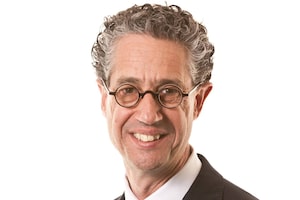The price of natural gas in Asia is about $16 for a thousand cubic feet. In Western Canada it's just over $3. It's the biggest price arbitrage in the commodity world.
There's 13 bucks to be made for every thousand cubic feet that crosses the Pacific Ocean. So, it's no wonder that a dozen consortia of multinational companies are clamouring over each other with their multibillion-dollar liquefied natural gas (LNG) proposals. Three serious project champions are leading the race to liberate Western Canadian natural gas from its North American price misery: Shell, Chevron and Malaysia's state-owned oil and gas company, Petronas. Flashing its investment dollars, the latter appears most anxious to be first to market.
It's hardly surprising then that Prime Minister Stephen Harper used the Asia-Pacific Economic Co-operation summit in Kuala Lumpur to talk natural gas with his Malaysian counterpart, Prime Minister Najib Razak. The Southeast Asian nation's stated commitment to invest $36-billion is big money by any world standard. For Western Canada's limping natural gas industry, Petronas's investment will go a long way to "re-piping" exports from a north-south orientation to west-east; it will be the biggest infrastructure build-out since the TransCanada pipeline was built in the late 1950s.
All of it seems like a no-brainer. Asian natural gas markets are growing at an annual pace of over 7 per cent and the demand for more is amplified by the need to choke off the choking effects of coal emissions. Japan needs a scalable alternative to its mothballed nukes too. A better match couldn't be found on this side of the Pacific where there is a plentiful supply of underpriced, stranded natural gas. All that's needed is to get the gas to the B.C. coast, compact it into liquid form, put it on a tanker and, voilà, unload it onto the $16 buyer.
It's not all that simple, but on paper there appears to be buckets of money to be made. There is only one nagging issue: Everyone who wants a piece of the action thinks there is more than $13 in each thousand-cubic-foot bucket.
The Canadian natural gas producer wants a higher price that's at least $4, otherwise he'll go out of business. The pipe guys need hefty tolls to justify building expensive lines to the coast. The facility operator that liquefies the gas needs a cut to pay for a multibillion-dollar outlay. Ocean-borne tankers refrigerated to 162 C do not come cheaply. And nor do the pots and pans on the receiving dock that boil the liquid back into a gas. Of course, at the end of the line, the Asian buyer wants in on the deal with a final price lower than the going rate of $16.
And then there is government, which wants a hand in every bucket. One of the biggest unknowns in all these grand projects is what share the province of British Columbia will want out of the system in the form of an export tax. Behind-the-scenes reports are signalling that tax negotiations are progressing well, but what share can Victoria take out of the arbitrage, assuming there is anything left?
We turn to the English scholar, Charles Beaumont, for wisdom. His 1789 book, A Treatise on the Coal Trade, recommended to the British government of the day that an export tax be placed on each chaldron of coal shipped to European customers, especially to the Dutch. Among many arguments and conclusions, Beaumont's dissertation distills into simple reasoning: An export tax would force collieries to be more efficient, solve the problem of domestic oversupply, and contribute handsomely to England's public purse. It was a plan that read like a win-win for everyone – except for the likes of the Dutch and French, who Beaumont argued could afford to pay more.
Surely today's Asian customers for Canadian natural gas, like 18th century European buyers of coal, can afford to pay more with a B.C. export tax? Maybe. But it depends upon how much all the aforementioned middlemen take out of the arbitrage. Nevertheless, neither the B.C. government nor Canadians at large who stand to benefit from such investment should pay attention to Beaumont's foundational argument at the time: English coal from Newcastle was of the highest quality anywhere in Europe and was "so necessary for their manufactories, that they cannot find elsewhere a substitute so suitable." In other words, the Dutch, Danish, Portuguese and other importers of Newcastle's best had no choice but to pay up for superior British coal if they wanted to continue operating their "distillery, sugar baking and smithsworks."
And therein lies the key difference between Charles Beaumont's British collieries and Christy Clark's British Columbia. Asian customers are not beholden to Canadian LNG, for they have plenty of choice elsewhere. Competition is cutthroat because there is little product differentiation. LNG is LNG whether it's exported from Mozambique, Australia, the Middle East and soon the United States too. If there is any room for an export tax here, the B.C. government and its corporate suitors must find a delicate balance of not pricing Canadian natural gas out of a highly competitive global market.
Last week's handshake between Stephen Harper and Najib Razak was a major step forward toward revitalizing Canada's natural gas industry. Seeing Premier Christy Clark do the same will be even better.
Peter Tertzakian is chief energy economist at ARC Financial Corp. in Calgary and the author of two best-selling books, A Thousand Barrels a Second and The End of Energy Obesity.
 Peter Tertzakian
Peter Tertzakian